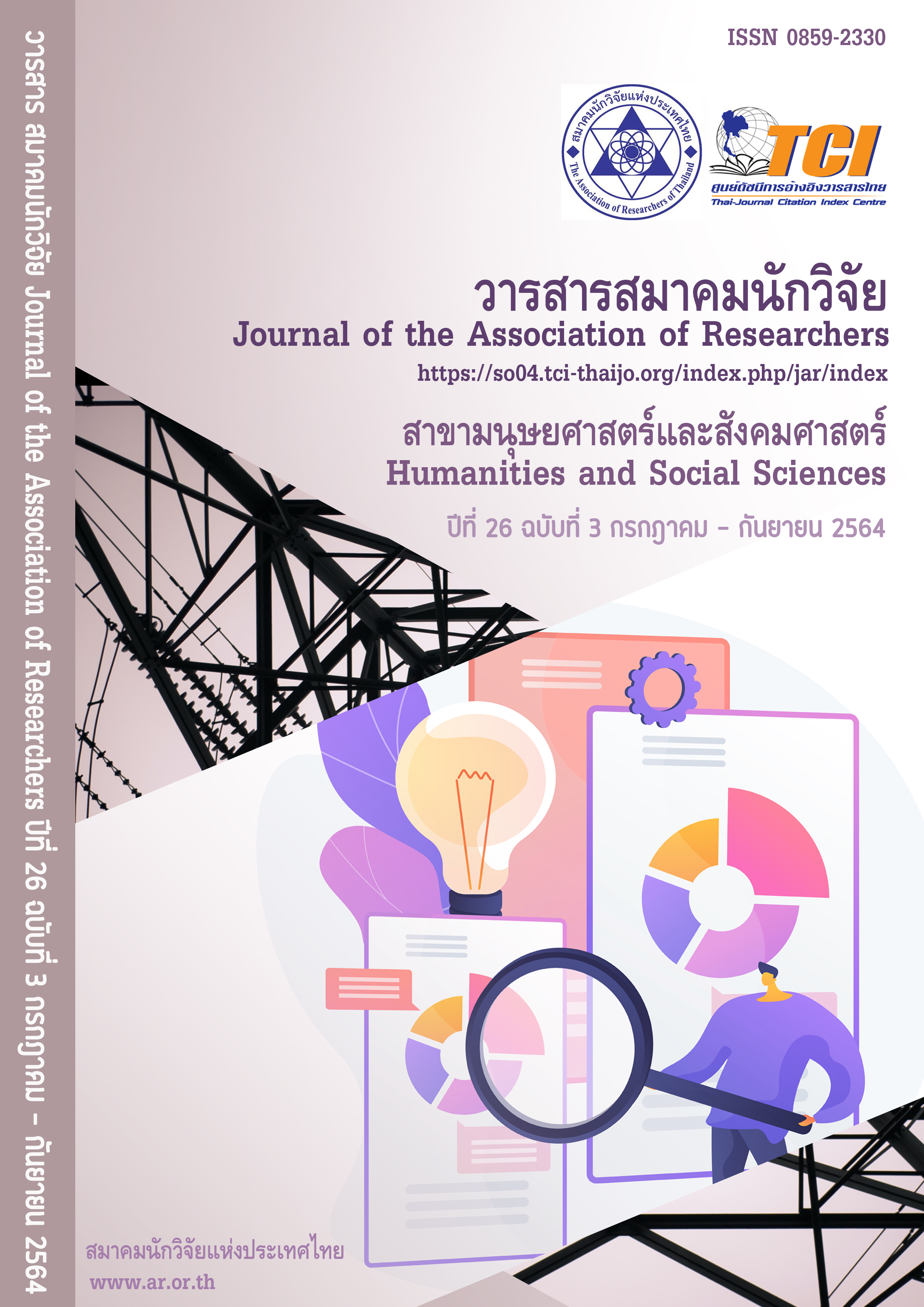Royal Public Administration and Development of Thailand
Main Article Content
Abstract
his study employed the qualitative methods in which data were collected through a review of related documents and an interview with key informants. The objectives of this study were to 1) investigate the definitions of the ‘royal public administration’ and its relationship with the public administration, 2) study the application of the ‘royal public administration’ in Thai contexts, and 3) study the relationship between the ‘royal public administration’ and public trust and loyalty. The research method was used a qualitative study. From the literature review and interviewing stakeholders, analyzing and presenting descriptive results.
The results showed that the king had implemented the ‘royal public administration’ to develop the country as well as to solve his subjects’ problems. This concept referred to the royal initiative projects brought into action by the government, state agencies, and private organizations. The term also referred to the budget and manpower support from the government sector and the army as well as the donation from the private sector, citizens, and the king himself. Furthermore, the king had publicly introduced the philosophy and established numerous royal initiative projects inspired by his visits to many areas in the country as well as his realization of the problems. The philosophy and the royal initiative projects could evidently lift the people out of poverty and improve their living quality. When the combination of ‘royal public administration’ and the public administration was implemented, it was found that the public trust in such administration was high since people truly believed that the ‘royal public administration’ would really benefit the country and the people despite some arguments concerning the operation of the royal initiative projects. To summarize, this study seeks to discover the forms and definitions of the term which could be a concept and theory for national development.
Article Details
บทความที่ปรากฏในวารสารนี้ เป็นความรับผิดชอบของผู้เขียน ซึ่งสมาคมนักวิจัยไม่จำเป็นต้องเห็นด้วยเสมอไป การนำเสนอผลงานวิจัยและบทความในวารสารนี้ไปเผยแพร่สามารถกระทำได้ โดยระบุแหล่งอ้างอิงจาก "วารสารสมาคมนักวิจัย"
References
คณะกรรมการพิเศษเพื่อประสานงานโครงการอันเนื่องมาจากพระราชดำริ(กปร.).(2530).พระบาทสมเด็จพระเจ้าอยู่หัวภูมิพลอดุลยเดชกับงานพัฒนา.กรุงเทพมหานคร:สำนักพิมพ์โรงพิมพ์กรุงเทพ(1984).
ปรีดิยาธร เทวกุล.(2562).หนึ่งในแผ่นดิน.กรุงเทพมหานคร:โรงพิมพ์กรุงเทพ (1984).
ภาณุมาศ ทักษณา.(2559). รอยยิ้มของในหลวง Smile of the king. กรุงเทพมหานคร: หจก. ณัฐพลการพิมพ์.
วิษณุ เครืองาม.(2562). ลงเรือแป๊ะ.กรุงเทพมหานคร:สำนักพิมพ์มติชน.
อุทัย เลาหวิเชียร.(2526).ความหมาย วิวัฒนาการสถานภาพและแนวโน้มของรัฐประศาสนศาสตร์.กรุงเทพมหานคร:สำนักพิมพ์มหาวิทยาลัยสุโขทัยธรรมาธิราช.
เอนก เหล่าธรรมทัศน์.(2560).เอนกทรรศน์. กรุงเทพมหานคร: มูลนิธิสถาบันสร้างสรรค์ปัญญาสาธารณะ.
เอนก เหล่าธรรมทัศน์.(2561). ราชาธิปไตย. กรุงเทพมหานคร: มูลนิธิสถาบันสร้างสรรค์ปัญญาสาธารณะ.
Crotts, J., & Turner, G. (1999). Determinants of intra-firm trust in Buyer-Seller Relationship in the International Travel Trade. Online fromhttp://thaiejournal.com/journal/2556volumes2M/15.pdf.
Luhmann, N.(1979). Trust and power. Chicherter: John Wilet & Sons.
Translated Thai References
Anek Laothammatat. (2017). Bangkok: Foundation of Creative Panya Institute public.
Anek Laothammatat. (2018). Monarchy of Bangkok: Foundation of the Public Intellectual Creation Institute.
Pridiyathorn Devakun. (2019). One of the Land. Bangkok: The Bangkok Printing Press (1984).
Panumas Thakana. (2016). Smile of the King, Smile of the king. Bangkok: Nat LP.General type.
Special Committee for Coordinating Royal Initiative Projects (OCSC) (1987).King Bhumibol Adulyadej and Development. Bangkok: Bangkok Publishing House (1984).
Uthai Laawichien. (1983). Meaning. The Evolution of Status and Trends of Public Administration. Bangkok: Sukhothai Thammathirat Open University Press.
Wissanu Kreangam. (2019). Board a Pae boat. Bangkok: Matichon Publishing House.


